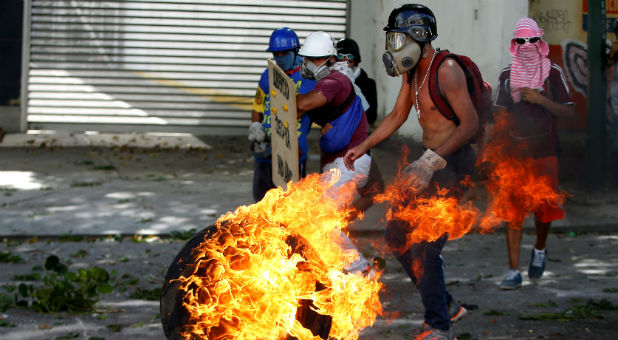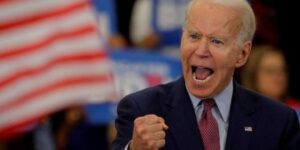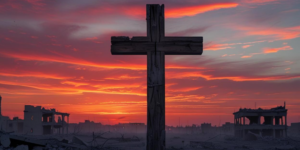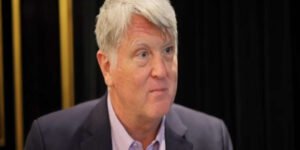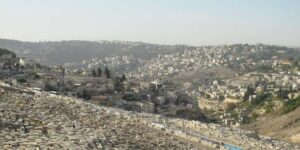US Throws Hail-Mary to Save Venezuela From Cruel Dictatorship
The Trump administration imposed sanctions on 13 senior officials of Venezuela’s government, military and state oil company PDVSA on Wednesday, U.S. officials said, seeking to ratchet up pressure on President Nicolas Maduro to scrap plans for a controversial new congress.
The United States targeted individuals, including the country’s army and police chiefs, the national director of elections and a PDVSA vice president, while sparing Venezuela for now from broader financial or “sectoral” sanctions against its vital oil industry—though such actions, the officials told Reuters, are still under consideration.
The move is aimed at showing Maduro’s socialist government that U.S. President Donald Trump is prepared to make good on his threat of “strong and swift economic actions” if it goes ahead with plans for a vote on Sunday to establish a constituent assembly that critics say will cement Maduro as dictator, the officials said.
The U.S. Treasury Department planned to issue a formal sanctions announcement later on Wednesday, the officials said, speaking on condition of anonymity.
One of the U.S. officials warned the move was just an initial round of sanctions and that the administration was readying tougher additional measures that could be rolled out as part of a “steady drumbeat” of responses to the Venezuelan crisis.
The most serious of the potential future steps would be financial sanctions that would halt dollar payments for the country’s oil, starving the government of hard currency, or a total ban on oil imports to the United States, Venezuela’s biggest customer.
But the decision to hold back on hitting Venezuela’s oil sector reflected a continuing internal debate that has weighed the risks of inflicting further suffering on the Venezuelan people, raising U.S. domestic gasoline prices and causing problems for PDVSA’s U.S. refining subsidiary, Citgo.
Even some of Maduro’s domestic critics have cautioned that the Venezuelan leader could rally his supporters under a nationalist banner if the United States goes too far on sanctions.
Among those sanctioned on Wednesday were national elections director Tibisay Lucena, army chief Jesus Suarez, national police director Carlos Perez and PDVSA vice president for finance Simon Zerpa, the officials said, speaking on condition of anonymity.
The accusations they face from Washington include human rights abuses, undermining democracy and corruption.
Maduro’s Crackdown
Like the Trump administration, Venezuela’s majority-backed opposition is demanding that Maduro scrap Sunday’s election, which would create a congress with powers to rewrite the country’s constitution and override all other institutions.
But Maduro insists it is the only way to empower the people and bring peace after four months of anti-government unrest in which more than 100 people have been killed.
The U.S. officials said the “designated” individuals were accused of supporting Maduro’s crackdown, harming democratic institutions or victimizing the Venezuelan people through corruption, and that additional “bad actors” could be sanctioned later.
Punitive measures include freezing U.S. assets, banning travel to the United States and prohibiting Americans from doing business with them.
Sanctions were imposed on the chief judge and seven other members of Venezuela’s pro-Maduro Supreme Court in May in response to their decision to annul the opposition-led Congress earlier this year.
That followed similar U.S. sanctions in February against Venezuela’s Vice President Tareck El Aissami for alleged links to drug trafficking.
Assets in the United States and elsewhere tied to El Aissami and an alleged associate and frozen by U.S. order now total hundreds of millions of dollars, far more than was expected, one of the U.S. officials told Reuters.
The Trump administration has also weighed possible sanctions against Venezuelan Defense Minister Vladimir Padrino and Socialist Party No. 2 Diosdado Cabello, other U.S. sources have told Reuters. But the two Maduro allies were not included in the latest round of punitive measures, the U.S. officials said on Wednesday.
However, individual sanctions have much more limited impact than some of other weapons in the U.S. sanctions arsenal.
Sanctions prohibiting any transaction in U.S. currency by PDVSA, for instance, are among the toughest of various oil-related measures under discussion at the White House, a senior White House official and an adviser with direct knowledge of the discussions told Reuters last week. {eoa}
© 2017 Thomson Reuters. All rights reserved. © 2017 Thomson Reuters. All rights reserved.



